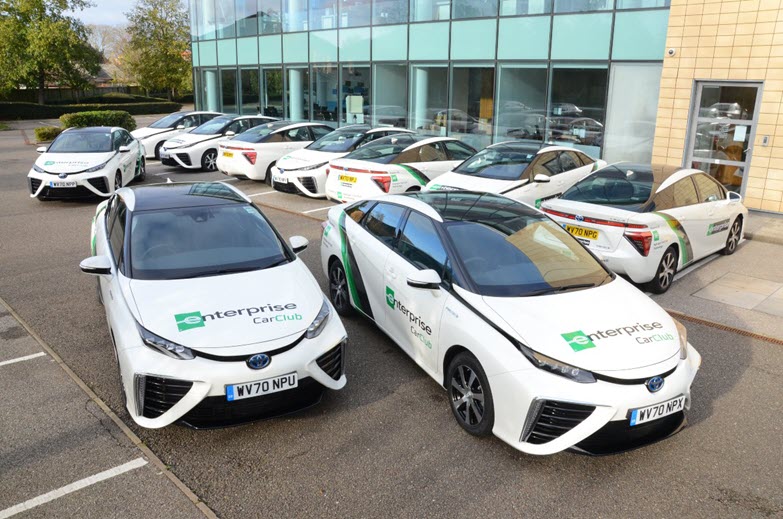
When it comes to cars and trucks that are better for the environment, most people immediately think of Tesla or other companies that are churning out electric vehicles and plug-in hybrids that run partially or entirely on electricity and battery power. While these are a good option for those looking to shrink their carbon footprint or reduce their greenhouse gas emissions, they aren’t the only technology out there that can reduce or eliminate the emissions generated by your daily commute.
What is fuel cell technology, and how can we get more people interested in this green alternative?
What Is Fuel Cell Technology?
Most of the cars, trucks, and SUVs on the road today either utilize internal combustion engines burning gasoline or diesel fuel, or electric motors that run on batteries. Or a combination of the two, in the case of plug-in hybrids.
Other than a few minor tweaks here and there for performance and efficiency, the gasoline engine hasn’t changed much in the last century. But continued use of fossil fuels to power billions of vehicles has had a negative impact on the planet.
Hydrogen, on the other hand, is the most abundant element in the universe. It easily combines with other elements, so you’ll rarely find the gas by itself in the wild. Hydrogen fuel cells utilize this abundant element, without the need for a contained explosion that you find in other modern engines.
Hydrogen fuel cells work a lot like a battery, but they don’t need recharging — just fuel. In this case, the fuel is hydrogen. When hydrogen bonds with oxygen, it produces heat and electricity. The only exhaust these fuel cells produce is water.
Applications Outside of Automotive
If you know anything about hydrogen fuel cells, you’ve probably seen them used in passenger cars. But that isn’t the only option for this new green technology.
Warehouses that use forklifts and other equipment that runs on diesel or propane could convert to hydrogen fuel cells. Trucks, busses, and trains can also use hydrogen, though converting existing infrastructure to support hydrogen rather than diesel might present a challenge.
Even airplanes could potentially use hydrogen fuel cells in the future as the technology becomes more mainstream.
There could even be applications for this readily available element in power generation. It might not become a replacement for the primary power grid, but it could be a viable backup for microgrids or areas where the primary grid is prone to failure. You might find homes heated by hydrogen instead of fossil fuels in the future, especially if we keep experiencing these brutally cold winters that are putting massive strains on the power grid, which have required generators for both contractors and homeowners.
Getting People Interested in Fuel Cells
Hydrogen fuel cell technology is a viable option. The problem isn’t access anymore — it is visibility. Most people may have heard of hydrogen fuel cells, but they don’t recognize them as something they could buy at the dealership and bring home in the near future. How can we get people interested in fuel cells?
Start by helping them understand how the technology works. We understand how electric cars work, which is also a relatively new technology. Simply expand those lessons to include hydrogen fuel cells and other green energy alternatives for their daily commute.
Once they become available for the average consumer, state and federal governments should consider offering incentives to encourage people to buy hydrogen fuel cell vehicles. These can come in the form of discounts, reimbursements, or tax credits, but will encourage people to consider a hydrogen fuel cell vehicle when they might have otherwise overlooked it.
Looking Toward the Future
Contrary to popular belief, driving a hydrogen fuel cell vehicle doesn’t put you at risk of going up like the Hindenburg if you get into a fender bender. Hydrogen fuel cells will likely be one of the major technologies that replace gasoline and diesel as we start to reduce our dependence on fossil fuels, but not if we can’t get people excited about the possibilities.


Jane Marsh, Contributor
The views and opinions expressed herein are those of the authors and do not necessarily reflect the official policy or position of Fuel Cells Works, its directors, partners, staff, contributors, or suppliers. Any content provided by our contributors or authors are of their own opinion and are not intended to malign any religion, ethnic group, club, organization, company, individual or anyone or anything.
Read the most up to date Fuel Cell and Hydrogen Industry news at FuelCellsWorks




